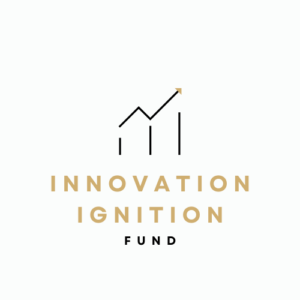The School of Medicine Basic Sciences is excited to announce, in collaboration with the Office of the Vice Provost for Research and Innovation, the pilot phase of a new program: the Innovation Ignition Fund.
About
The IIF aims to support promising, early-stage small molecule therapeutic projects and provide critical guidance and mentoring to nurture such projects to the point where they are ready for major funding, industry partnership, and/or spin-off to sustain momentum toward their potential success.
The IIF was established with funds provided by Basic Sciences and the Vice Provost for Research and Innovation. In its pilot phase, the ignition fund will support one to three proposals for up to $250,000/year for up to two years, focusing on the initial data-gathering experiments required for de-risking projects between the target validation and the lead optimization stages. The total funding available per year is $250,000.
This fund exemplifies our shared dedication to advancing early-stage therapeutic projects. Decisions regarding project selection, resource allocation, and strategic guidance are made collaboratively, harnessing the collective expertise of both entities. Funded projects will be able to draw on drug discovery expertise within the Vanderbilt Institute of Chemical Biology, the Warren Center for Neuroscience Drug Discovery, and the Vanderbilt Center for Cancer Drug Discovery.
Submission Criteria
Faculty with a primary or secondary appointment in a School of Medicine Basic Sciences department can submit proposals as a principal investigator. The PI will be the project’s direct contact and can have co-principal investigators. Eligible proposal projects focusing on any stage between target validation to hit identification and lead optimization will be eligible for review and mentorship by drug discovery experts.
To emphasize: the focus is on providing funds for the initial data-gathering experiments that will de-risk the research from a chemical and/or biological perspective to take the project to the next stage where it will be attractive for other funding sources.
A critical component of successful applications will be the demonstrated involvement of scientists with a track record of success in drug discovery. To satisfy this condition, applicants must include a supporting letter indicating a commitment of assistance with the project from one of the following: Gary Sulikowski, director of the VICB; Craig Lindsley, director of the WCNDD; Stephen Fesik, professor of biochemistry, pharmacology, and chemistry; or Alex Waterson, director of the VCCDD. Alternatively, the applicants may include a supporting letter from another scientist in academia or industry with a proven track record in successful drug discovery.
To Apply
To apply, please submit a three-to-four-page proposal that describes the biomolecular target. This description should convey a clear link, such as genetic evidence, to a specific disease’s or condition’s pathophysiology and a clear understanding of the biology of the disease. The proposal should also include information about cell-based assays, established for in vitro or in vivo studies, and any relevant biomarkers useful in characterizing compounds and/or evaluating efficacy. The proposal must provide an initial hypothesis for how modulation of the target would elicit novel pharmacology to treat the disease and how this project would fill a critical unmet medical need.
It is also essential to include a two-year timeline for execution and completion of the proposed research, an assessment of the patient population that would benefit from a successful drug, and whether the drug would be first-in-class or instead compete against existing treatments. The timeline should include a statement describing milestones for the expected progress of the project at the end of one year and at the end of two years, along with the anticipated next steps.
In addition to the project proposal, you must provide a projected budget with justifications. You must include the name and primary department of the PI and a complete list of co-PIs and their primary departments or institutions. Applications will be accepted starting Feb. 1, 2024. Proposals should be submitted by email as a single PDF file to Assistant Dean for Research Selene Colon by April 1, 2024. Completion of reviews and notification of awardees will occur by May 1, 2024.
Please read the request for applications for further details and instructions.
